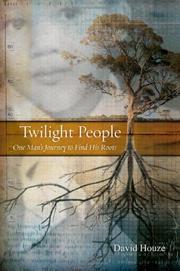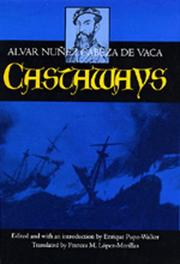| Listing 1 - 7 of 7 |
Sort by
|
Book
ISBN: 9781594772504 Year: 2011 Publisher: Rochester, Vermont Healing Arts Press
Abstract | Keywords | Export | Availability | Bookmark
 Loading...
Loading...Choose an application
- Reference Manager
- EndNote
- RefWorks (Direct export to RefWorks)
psychedelic healing --- Jung --- self-discovery --- therapy --- psychiatry --- spirituality --- medicine --- rites of passage --- shamanic rituals --- entheogens
Book
ISBN: 0520964640 9780520964648 9780520290532 0520290534 9780520290549 0520290542 Year: 2016 Publisher: Berkeley, CA : University of California Press,
Abstract | Keywords | Export | Availability | Bookmark
 Loading...
Loading...Choose an application
- Reference Manager
- EndNote
- RefWorks (Direct export to RefWorks)
Religion is often viewed as a universally ancient element of the human inheritance, but in the Western Himalayas the community of Himachal Pradesh discovered its religion only after India became an independent secular state. Based on extensive ethnographic and archival work, Becoming Religious in a Secular Age tells the story of this discovery and how it transformed a community's relations to its past and to its members, as well as to those outside the community. And, as Mark Elmore demonstrates, Himachali religion offers a unique opportunity to reimagine relations between religion and secularity. Elmore shows that modern secularity is not so much the eradication of religion as the very condition for its development. Showing us that to become a modern, ethical subject is to become religious, this book creatively augments our understanding of both religion and modernity.
RELIGION / Religion, Politics & State. --- Himachal Pradesh (India) --- Himācala Pradeśa (India) --- Chamba (Princely State) --- Religion --- academic. --- archival. --- colonialism. --- colony. --- community. --- conversion. --- development. --- eastern religion. --- eastern world. --- ethics. --- ethnography. --- himachal pradesh. --- himalayas. --- independence. --- india. --- indian independence. --- modern world. --- modernity. --- religion. --- religious awakening. --- religious convert. --- religious studies. --- research. --- scholarly. --- secular world. --- secular. --- self discovery. --- social studies. --- transformation. --- world history. --- world religion.
Book
ISBN: 1003166989 9781003166986 9781000451733 1000451739 9781000451702 1000451704 9780367765767 0367765764 0367765772 9780367765774 9780367765774 Year: 2021 Publisher: Taylor & Francis
Abstract | Keywords | Export | Availability | Bookmark
 Loading...
Loading...Choose an application
- Reference Manager
- EndNote
- RefWorks (Direct export to RefWorks)
"Organization and Education Development combines reflective thinking and practice, action research living theory, and organization development to explore the self-discovery of meaning and purpose. It charts a journey undertaken by the author in pursuit of professional development through self-awareness and self-change as a fully integrated person and a better professor. This book is about an individual's integrative journey of self-discovery. The author’s narrative includes values and organizational development concepts and theories shared with fellow travelers, including supervisors, friends, and students. He shares invaluable insights and examples with the reader, using a model of a six-spoke wheel of final discovery and the MICAI intersection model. These integrative guides provide examples on how to search for what is best in everyday life and what gives us true meaning, encouraging personal reflection and ways of nurturing appreciation for our own lives. This multidisciplinary book combines western and eastern models and philosophies and draws from organization development, positive psychology, and education development. It will be ideal reading for students, researchers, and academics in the fields of organizational development, organizational psychology, social psychology, and education. It will appeal to any reader interested in learning about self-development. "
Career development. --- Self-consciousness (Awareness) --- Self-awareness --- Self-consciousness --- Consciousness --- Career advancement --- Career ladder --- Career management --- Career planning --- Development, Career --- Development, Professional --- Employee development --- Organizational career development --- Professional development --- Personnel management --- Vocational guidance --- action research living theory;appreciative inquiry;creativity;journaling;organization development;reflective thinking;self-awareness;self- discovery --- Self-management (Psychology) --- Self-culture --- Career development
Book
ISBN: 1479883050 Year: 2019 Publisher: New York : Baltimore, Md. : New York University Press, Project MUSE,
Abstract | Keywords | Export | Availability | Bookmark
 Loading...
Loading...Choose an application
- Reference Manager
- EndNote
- RefWorks (Direct export to RefWorks)
The successes and failures of an industry that claims to protect and promote our online identitiesWhat does privacy mean in the digital era? As technology increasingly blurs the boundary between public and private, questions about who controls our data become harder and harder to answer. Our every web view, click, and online purchase can be sold to anyone to store and use as they wish. At the same time, our online reputation has become an important part of our identity—a form of cultural currency.The Identity Trade examines the relationship between online visibility and privacy, and the politics of identity and self-presentation in the digital age. In doing so, Nora Draper looks at the revealing two-decade history of efforts by the consumer privacy industry to give individuals control over their digital image through the sale of privacy protection and reputation management as a service.Through in-depth interviews with industry experts, as well as analysis of media coverage, promotional materials, and government policies, Draper examines how companies have turned the protection and promotion of digital information into a business. Along the way, she also provides insight into how these companies have responded to and shaped the ways we think about image and reputation in the digital age.Tracking the successes and failures of companies claiming to control our digital ephemera, Draper takes us inside an industry that has commodified strategies of information control. This book is a discerning overview of the debate around who controls our data, who buys and sells it, and the consequences of treating privacy as a consumer good.
Information technology --- Consumer protection --- Data protection --- Privacy --- Internet industry --- Social aspects --- Anonymizer. --- Commodification. --- Cypherpunks. --- Digital culture. --- Environmental movement. --- Government regulation. --- Image promotion. --- Individualization. --- Industry ethics. --- Industry self-regulation. --- Infomediaries. --- Internet. --- Managed visibility. --- Neoliberalism. --- Online reputation management. --- Personal data ecosystem. --- Personal data. --- Personal information. --- Political economy. --- Public pedagogy. --- Search engine optimization. --- Self-branding. --- Self-knowledge. --- Self-presentation. --- Self-tracking. --- Strategic transparency. --- Surveillance. --- Technology. --- Visibility. --- media. --- self-discovery. --- technology industries.

ISBN: 0520931742 1282357646 9786612357640 1598759477 9780520931749 1423766628 9781423766629 9781598759471 9780520243989 0520243986 9781282357648 6612357649 Year: 2006 Publisher: Berkeley : University of California Press,
Abstract | Keywords | Export | Availability | Bookmark
 Loading...
Loading...Choose an application
- Reference Manager
- EndNote
- RefWorks (Direct export to RefWorks)
David Houze was twenty-six and living in a single room occupancy hotel in Atlanta when he discovered that three little girls in an old photo he'd seen years earlier were actually his sisters. The girls had been left behind in South Africa when Houze and his mother fled the country in 1966, at the height of apartheid, to start a new life in Meridian, Mississippi, with Houze's American father. This revelation triggers a journey of self-discovery and reconnection that ranges from the shores of South Africa to the dirt roads of Mississippi-and back. Gripping, vivid, and poignant, this deeply personal narrative uses the unraveling mystery of Houze's family and his quest for identity as a prism through which to view the tumultuous events of the civil rights movement in Mississippi and the rise and fall of apartheid in South Africa. Twilight People is a stirring memoir that grapples with issues of family, love, abandonment, and ultimately, forgiveness and reconciliation. It is also a spellbinding detective story-steeped in racial politics and the troubled history of two continents-of one man's search for the truth behind the enigmas of his, and his mother's, lives.
African Americans --- Civil rights movements --- Apartheid --- Brothers and sisters. --- Sibling relations --- Siblings --- Sisters and brothers --- Families --- Sibling abuse --- Blacks --- Segregation --- Afro-Americans --- Black Americans --- Colored people (United States) --- Negroes --- Africans --- Ethnology --- Civil rights --- History --- Houze, David, --- Southern States --- South Africa --- Race relations. --- Race question --- Black people --- Brothers and sisters --- Siblings. --- abandonment. --- africa. --- african american. --- american south. --- apartheid. --- autobiography. --- biography. --- black. --- civil rights. --- colonialism. --- discrimination. --- ex pat. --- expatriate. --- family. --- forgiveness. --- history. --- identity. --- immigration. --- imperialism. --- lost family. --- lost siblings. --- memoir. --- mississippi. --- nonfiction. --- personal narrative. --- political history. --- prejudice. --- race. --- racial politics. --- racism. --- reconciliation. --- refugee. --- self discovery. --- sisters. --- social history. --- social issues. --- south africa.

ISBN: 128008880X 9786613520326 0520922468 0585253005 9780520922464 9780585253008 9780520217515 0520217519 0520210840 0520217519 9780520210844 6613520322 Year: 1998 Publisher: Berkeley University of California Press
Abstract | Keywords | Export | Availability | Bookmark
 Loading...
Loading...Choose an application
- Reference Manager
- EndNote
- RefWorks (Direct export to RefWorks)
Each year thousands of men and women from more than sixty countries journey by foot and bicycle across northern Spain, following the medieval pilgrimage road known as the Camino de Santiago. Their destination is Santiago de Compostela, where the remains of the apostle James are said to be buried. These modern-day pilgrims and the role of the pilgrimage in their lives are the subject of Nancy Louise Frey's fascinating book. Unlike the religiously-oriented pilgrims who visit Marian shrines such as Lourdes, the modern Road of St. James attracts an ecumenical mix of largely well-educated, urban middle-class participants. Eschewing comfortable methods of travel, they choose physically demanding journeys, some as long as four months, in order to experience nature, enjoy cultural and historical patrimony, renew faith, or cope with personal trauma. Frey's anthropological study focuses on the remarkable reanimation of the Road that has gained momentum since the 1980's. Her intensive fieldwork (including making the pilgrimage several times herself) provides a colorful portrayal of the pilgrimage while revealing a spectrum of hopes, discontents, and desires among its participants, many of whom feel estranged from society. The Camino's physical and mental journey offers them closer community, greater personal knowledge, and links to the past and to nature. But what happens when pilgrims return home? Exploring this crucial question Frey finds that pilgrims often reflect deeply on their lives and some make significant changes: an artistic voice is discovered, a marriage is ended, meaningful work is found. Other pilgrims repeat the pilgrimage or join a pilgrims' association to keep their connection to the Camino alive. And some only remain pilgrims while on the road. In all, Pilgrim Stories is an exceptional prism through which to understand the desires and dissatisfactions of contemporary Western life at the end of the millennium. "Feet are touched, discussed, massaged, [and] become signs of a journey well traveled: 'I did it all on foot!' . . . Pilgrims give feet a power and importance not recognized in daily life, as a causeway and direct channel to the road, the past, meaningful relations, nature, and the self."
Christian pilgrims and pilgrimages --- Pilgrims and pilgrimages, Christian --- Christian shrines --- Pilgrims and pilgrimages --- Interviews. --- Frey, Nancy Louise, --- Santiago de Compostela (Spain) --- Santiago de Galicia (Spain) --- Saint-Jacques de Compostelle (Spain) --- Santiago (La Coruña, Spain) --- Santiago di Compostella (Spain) --- San Giacomo di Compostella (Spain) --- Church history --- Santiago de Compostela (Spain) - Church history - 20th century. --- 1980s. --- anthropology. --- athletes. --- athletics. --- bicycle. --- bike race. --- class issues. --- european history. --- faith. --- historical. --- marian shrines. --- marian. --- middle class. --- natural world. --- nature. --- pilgrims. --- professional athletes. --- religion. --- religious pilgrimage. --- religious studies. --- self actualization. --- self discovery. --- shrines. --- spain. --- spanish history. --- tourism. --- tourists. --- trauma. --- travel. --- true story. --- urban. --- virgin mary.

ISBN: 0520910281 0585130027 9780520910287 9780585130026 0520070623 0520070631 9780520070622 9780520070639 Year: 1993 Publisher: Berkeley
Abstract | Keywords | Export | Availability | Bookmark
 Loading...
Loading...Choose an application
- Reference Manager
- EndNote
- RefWorks (Direct export to RefWorks)
This enthralling story of survival is the first major narrative of the exploration of North America by Europeans (1528-36). The author of Castaways (Naufragios), Alvar Núñez Cabeza de Vaca, was a fortune-seeking nobleman and the treasurer of an expedition to claim for Spain a vast area that includes today's Florida, Louisiana, and Texas. A shipwreck forced him and a handful of men to make the long westward journey on foot to meet up with Hernán Cortés. In order to survive, Cabeza de Vaca joined native peoples along the way, learning their languages and practices and serving them as a slave and later as a physician. When after eight years he finally reached the West, he was not recognized by his compatriots. In his writing Cabeza de Vaca displays great interest in the cultures of the native peoples he encountered on his odyssey. As he forged intimate bonds with some of them, sharing their brutal living conditions and curing their sick, he found himself on a voyage of self-discovery that was to make his reunion with his fellow Spaniards less joyful than expected. Cabeza de Vaca's gripping narrative is a trove of ethnographic information, with descriptions and interpretations of native cultures that make it a powerful precursor to modern anthropology. Frances M. López-Morillas's translation beautifully captures the sixteenth-century original. Based as it is on Enrique Pupo-Walker's definitive critical edition, it promises to become the authoritative English translation.
Indians of North America --- Explorers --- American aborigines --- American Indians --- First Nations (North America) --- Indians of the United States --- Indigenous peoples --- Native Americans --- North American Indians --- Culture --- Ethnology --- Núñez Cabeza de Vaca, Alvar, --- Cabeça de Vaca, Alvar Núñez, --- Cabeza de Vaca, Alvar Núñez, --- De Vaca, Alvar Núñez Cabeza, --- Núñez, Alvar, --- Nunez, Alvaro, --- Núñez Cabeça de Vaca, Alvar, --- Núñez Cabeza de Vaca, Alvar, --- Núñez Cabeza de Vaca, Vasco, --- Núñez de Vera Cabeza de Vaca, Alvar, --- Vaca, Alvar Núñez Cabeza de, --- Vaca, Cabeza de, --- Vera Cabeza de Vaca, Alvar Núñez de, --- America --- Southwestern States --- Southwestern United States --- United States, Southwestern --- Early accounts to 1600. --- Discovery and exploration --- Spanish. --- Description and travel. --- 16th century native american culture. --- 16th century spanish exploration. --- anthropology. --- cultural study. --- curing the sick. --- ethnography. --- exploration. --- faith healer. --- florida. --- hernn corts. --- living conditions. --- louisiana. --- medical care. --- native american tribes. --- native cultures. --- native peoples. --- new world. --- nobleman. --- north america. --- physician. --- proto anthropology. --- reunion. --- self discovery. --- shipwreck. --- slave. --- spain. --- spanish explorer. --- survival. --- texas. --- translated text. --- treasurer. --- westward journey.
| Listing 1 - 7 of 7 |
Sort by
|

 Search
Search Feedback
Feedback About UniCat
About UniCat  Help
Help News
News